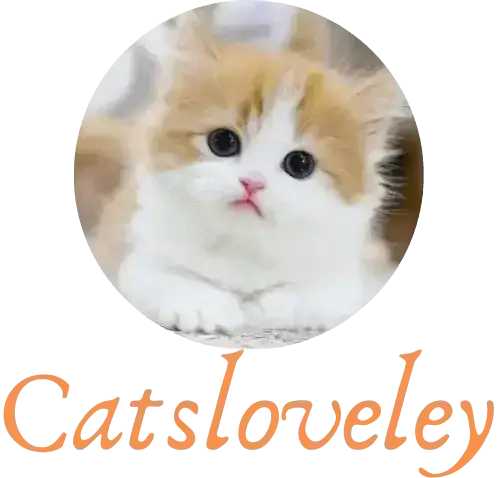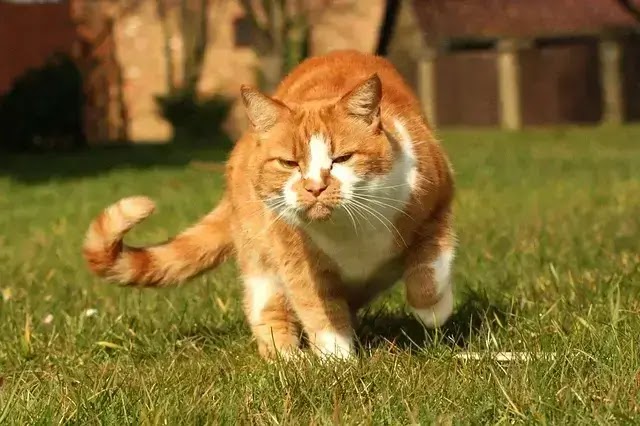As cats age, their nutritional needs change and they may experience weight loss. This can be concerning for cat owners, but understanding the specific nutritional demands of senior felines can help address the issue. “Aging Cats and Weight Loss: Meeting the Nutritional Demands of Senior Felines” is a comprehensive guide to feeding your older cat and addressing weight loss.
This guide covers the unique nutritional requirements of senior cats, including the need for higher protein levels and fewer calories. It also provides tips for addressing weight loss in older cats, such as feeding smaller, more frequent meals and ensuring adequate hydration. Whether you are concerned about your senior cat losing weight or simply want to ensure they are getting the nutrition they need as they age, “Aging Cats and Weight Loss” can help you meet the nutritional demands of your older cat.
What are the specific nutritional needs of aging cats?
- Protein: Aging cats need more protein than younger cats. This is because they may lose muscle mass and need protein to maintain their muscles.
- Calories: Aging cats tend to be less active and have a slower metabolism, so they need fewer calories. However, they may still need more calories than younger cats because they may have trouble absorbing nutrients from their food.
- Fiber: Older cats may need more fiber to aid digestion and prevent constipation.
- Fat: Older cats may benefit from diets that are lower in fat, as they are more prone to obesity and may have a decreased ability to digest fat.
- Water: Older cats may have a decreased sense of thirst, which can lead to dehydration. Feeding wet food or adding water to dry food can help ensure they get enough water.
- Vitamins and minerals: Older cats may have a decreased ability to absorb certain vitamins and minerals, so diets should be supplemented with these nutrients as necessary.
- Omega-3 fatty acids: These fatty acids can help support joint health and cognitive function in aging cats.
Why is my elderly cat eating but losing weight?
- Reduced metabolism: As cats age, their metabolism may slow down, leading to weight loss even when they eat normally.
- Dental problems: Older cats may develop dental problems, such as gum disease or tooth decay, which can make it painful to eat and lead to weight loss.
- Hyperthyroidism: This is a common condition in older cats where the thyroid gland produces too much thyroid hormone, leading to increased metabolism and weight loss.
- Chronic kidney disease: Older cats are prone to chronic kidney disease, which can cause weight loss due to decreased appetite and poor nutrient absorption.
- Diabetes: Diabetes can lead to weight loss in cats despite increased appetite.
- Cancer: Weight loss is a common symptom of cancer in cats.
What should an older cat eat if it is leaning out?
- High-quality, high-protein diet: Older cats may require more protein than younger cats to help maintain muscle mass. Look for high-quality commercial cat food that is designed for senior cats and contains high levels of protein.
- Frequent, smaller meals: Feeding your cat smaller, more frequent meals throughout the day can help ensure that they are getting enough nutrition and calories.
- Nutritional supplements: Your veterinarian may recommend nutritional supplements, such as omega-3 fatty acids or vitamin B12, to help improve your cat’s appetite and overall health.
- Wet food: Wet food can help increase your cat’s hydration levels and provide additional nutrition. If your cat is not accustomed to wet food, gradually introduce it into their diet.
- Prescription diets: Your veterinarian may recommend a prescription diet specifically designed for cats with weight loss or other health issues.
- Appetite stimulants: In some cases, your veterinarian may prescribe appetite stimulants to help increase your cat’s appetite and promote weight gain.
Do senior cats eat less as they get older?
Is it normal for older cats to become bonier?
- Reduced muscle mass: As cats age, they may naturally lose muscle mass, which can lead to a more bony appearance.
- Decreased appetite: Older cats may eat less due to decreased appetite, which can lead to weight loss and a more bony appearance.
- Dental problems: Dental problems such as tooth decay or gum disease can make it painful for cats to eat, leading to a decrease in appetite and weight loss.
- Digestive issues: Older cats may experience digestive issues such as constipation or gastrointestinal disease, which can cause weight loss.
- Hyperthyroidism: Hyperthyroidism is a common condition in older cats where the thyroid gland produces too much thyroid hormone, leading to increased metabolism and weight loss.
- Chronic kidney disease: Chronic kidney disease is a common condition in older cats that can cause weight loss due to decreased appetite and poor nutrient absorption.
What is the advice for families who have an older cat or who are interested in adopting one?
- Schedule regular veterinary check-ups: Older cats require more frequent veterinary check-ups to monitor for any age-related health issues. Regular check-ups can help identify health issues early and ensure your cat receives timely treatment.
- Provide a comfortable living environment: Older cats may require modifications to their living environment to make it more comfortable for them. This may include providing soft bedding, litter boxes with low sides, and easy access to food and water.
- Feed a high-quality diet: Older cats have unique nutritional requirements and may require a diet that is specifically tailored to their needs. Look for high-quality senior cat food that is designed to meet the nutritional needs of older cats.
- Encourage exercise and mental stimulation: While older cats may be less active than younger cats, it is still important to encourage regular exercise and mental stimulation. This can include providing toys, scratching posts, and playtime with your cat.
- Monitor for signs of health issues: Older cats may be more prone to certain health issues such as arthritis, dental problems, and kidney disease. It is important to monitor for any signs of health issues, such as changes in appetite, weight loss, lethargy, or difficulty walking.
- Provide lots of love and attention: Older cats can make wonderful companions and often require more love and attention than younger cats. Spend time with your cat, provide lots of affection, and create a comfortable and loving environment for them.


